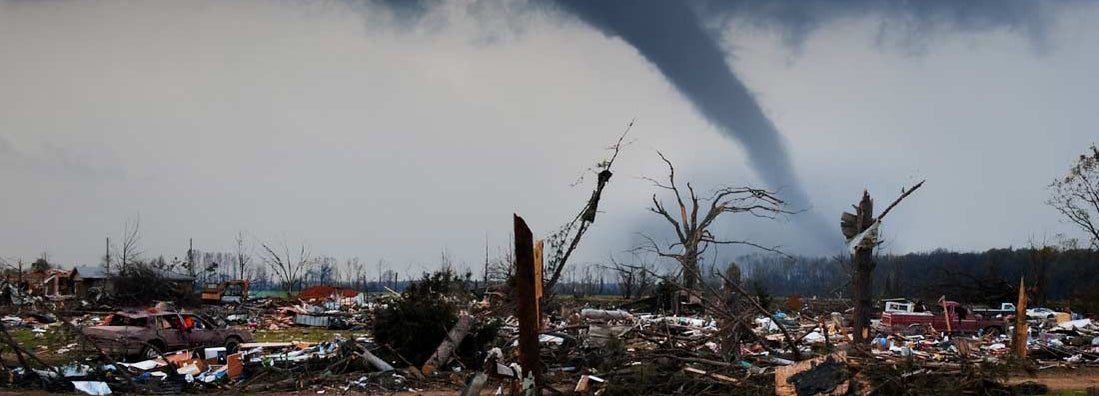Hawaii Tornado Insurance
Find the right tornado insurance policy for you.

Tornadoes have touched down in every U.S. state, and although Hawaii is among the least likely to experience such a storm, they do occur on these islands from time to time. A tornado’s powerful winds can be quite destructive, so it is important that you are covered by sufficient insurance. If you are a resident of Hawaii, you likely have coverage through the policies you already carry. It is important to be aware of what your policies cover and to ensure that your limits are high enough. If not, you may want to compare a variety of tornado insurance policies and quotes in Hawaii to find decent coverage at a reasonable rate.
Use our independent agent matching system to find the best insurance plan in your area. You tell us what you’re looking for, and our technology will recommend the best agents for you. Any information you provide will be sent to only the agents you pick. We do not sell to third parties.
Hawaii Tornado Facts
- Hawaii is the 48th mostly likely U.S. state to be hit by a tornado
- This state averages fewer than one tornado per year
- Between 1950 and 1994:
- 28 tornadoes touched down in this state
- These 28 tornadoes caused 6 injuries and no fatalities
- These 28 tornadoes were responsible for $5,467,620 in property damage
- That is an average of $195,272 per tornado
Why Is Tornado Insurance So Important in Hawaii?
By and large, tornadoes are not a pressing concern to the citizens of Hawaii. They do, however, occur on occasion. If your property is damaged or destroyed by the cyclonic winds of a tornado, you will be glad to have tornado insurance covering your property.
The good news is that this is not coverage that you need to purchase separately. In most cases, it is included in the coverage you already have, such as your home and auto insurance. The important thing is to ensure that you are covered and that your coverage limits are high enough to fully cover you in the event of a total loss.
None of the tornadoes that have touched down in Hawaii have exceeded an F2 rating, but that doesn’t mean that they are never destructive. In January of 1971, for example, three tornadoes touched down in this state over a two day period and caused more than $2.5 million in damages. When it comes to tornadoes, it is better to be safe than sorry.
Tornado Insurance Can Cover Damages to Hawaii Homes
Tornadoes can cause all sorts of damage to your personal property, including your home and outlying structures such as sheds, fences and detached garages. When roofs and windows are damaged by the heavy winds these storms bring, you may also experience major property damage to the belongings kept inside your home. Fortunately, most home insurance policies provide coverage against this sort of damage as part of their standard or extended coverage packages.
It is very likely that your homeowners, condo or renters insurance policy includes tornadoes among its covered events, but you should check to be sure. This is particularly true if you have a named-peril policy. You will also want to make sure that your coverage limits are high enough to properly cover your home and its contents in the event that your home is catastrophically destroyed.
Many insurance experts recommend that you revisit your coverage amounts every three to five years since your property ownership can change over time. Remember that that some highly valuable items, such as original artwork and collectibles, may need an additional endorsement in order to be covered in full.
You Can Cover Your Vehicle Against Tornado Damage
A tornado can cause extensive damage to cars and trucks, whether they are on the road or in the driveway, when it touches down. Flying debris, falling trees, and collapsed garages are just some of the many tornado-related hazards that can lead to property damage. The only way to have coverage against this type of destruction is by including comprehensive coverage as part of your vehicle’s insurance policy.
Comprehensive coverage is usually required by lenders when you finance the purchase of your vehicle, so if you are still making payments on it, you probably already have this coverage. If not, you may want to consider adding it. You can get quotes for comprehensive coverage by contacting your insurance company. You may also want to shop around to see if you can get a better rate. If you cannot afford to replace your vehicle in the event of a total loss, comprehensive coverage may be a good idea.
You Can Cover Other Investments Against Torndaoes
Houses and vehicles are not the only property that needs protection from tornado damage. You may be one of Hawaii’s many business owners, in which case you will need a suitable business insurance policy to provide you with coverage. A good business insurance policy can even allow your company to continue receiving an income if a covered event, such as a tornado, forces you to halt business operations for an extended period of time.
Similarly, if you own property such as boat, ATV or horse-trailer, having the appropriate insurance for these items can provide you with compensation if they are damaged by the cyclonic winds of a twister. In some cases, your homeowners insurance may provide a measure of coverage for these items, but it is typically very limited, so you may want to invest in a boat, ATV, trailer or other relevant insurance policy so ensure you are fully covered.
Get Help Reviewing Tornado Insurance Quotes in Hawaii
If you want to be certain that you are properly covered against tornado damage, you will need to review your currently held policies. This may leave you with questions about your policies’ coverage. Fortunately, an independent insurance agent in the Trusted Choice® network can help you evaluate your insurance coverage and policy limits. In the event that additional coverage is needed, these agents can provide you with a selection of competitively priced policies that you can review and compare.
Contact a Trusted Choice agent in Hawaii to get more information and you can start comparing tornado insurance quotes in no time.
